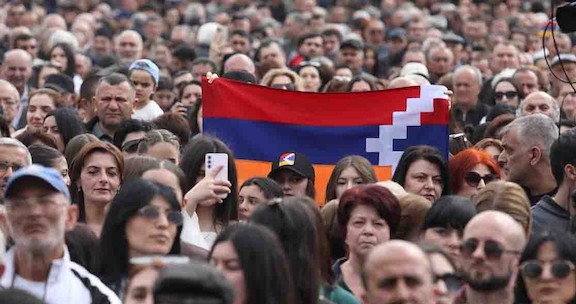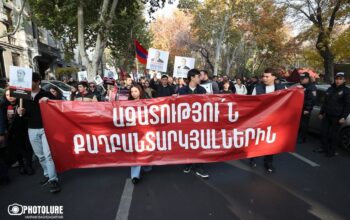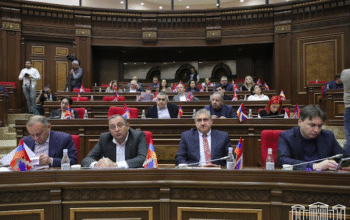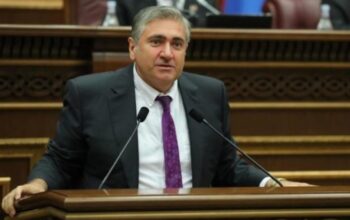The Armenian government, led by Nikol Pashinyan’s increasingly discredited Civil Contract party, was forced on Wednesday to backpedal on its callous decision to slash housing assistance for tens of thousands of refugees from Artsakh. The reversal came in response to mounting public outrage and growing street protests in Yerevan.
Until April of this year, displaced Artsakh Armenians—many of whom lost everything following Azerbaijan’s brutal takeover of their homeland in September 2023—were receiving a modest 50,000 drams ($125) per month in housing and utility support. These payments were a lifeline for the vast majority of the 105,000 refugees now struggling to survive in Armenia.
In November 2024, the Pashinyan regime unilaterally decided to phase out the program, effectively abandoning thousands of families in need. The cuts were to begin in April, with only children, students, pensioners, and disabled individuals still eligible for reduced aid—first 40,000 drams, then 30,000 by July. Working-age adults, many of whom still cannot find stable housing or employment, were left out entirely.
Unsurprisingly, this cruel policy provoked public fury. On March 29, thousands of displaced Artsakh Armenians gathered in Yerevan, demanding the reversal of the decision. Deputy Prime Minister Tigran Khachatryan’s token offer of minor revisions was roundly rejected by the protesters, who promised further demonstrations if their demands were not met.
Now, under pressure from the growing movement, the government has delayed the cuts by two months—an attempt to buy time and quell dissent. During its weekly session, chaired by Pashinyan, officials vaguely promised to “improve socially oriented programs”—a familiar refrain from a government that has repeatedly prioritized foreign approval over Armenian lives.
In a sign of good faith, protest organizers have dismantled their tent camp in Liberty Square and agreed to further talks. But they remain vigilant. “If there is a need for a second rally… we will follow that path,” one of the activists told reporters.
The regime’s fear of political backlash has been palpable. Rather than show empathy or engage constructively, Civil Contract officials and their loyalists have resorted to smearing Artsakh refugees. Former Health Minister Arsen Torosyan disgracefully claimed the protest was a “fight against the existence of the Republic of Armenia,” while a member of Pashinyan’s staff dismissed the demonstrators as mere tools of the opposition.
In reality, the rally’s organizers voiced clear and legitimate political demands—chief among them, that Armenia take serious legal, diplomatic, and political steps to secure the collective right of Artsakh Armenians to return to their homeland. Pashinyan’s response has been deafening silence.
Having declared the Artsakh issue “closed,” the prime minister continues to ignore the plight of his own people, refusing to raise their cause in international forums or in negotiations with Azerbaijan. Worse still, he has threatened the very leadership of Artsakh in exile, accusing them of illegitimacy and vowing to suppress their voice.
As the regime scrambles to contain the political fallout, one thing has become clear: the people of Artsakh have not been broken, and their struggle for dignity and justice is far from over. If the government continues down this path, the opposition—buoyed by growing public solidarity—will be ready to confront it at every turn.




